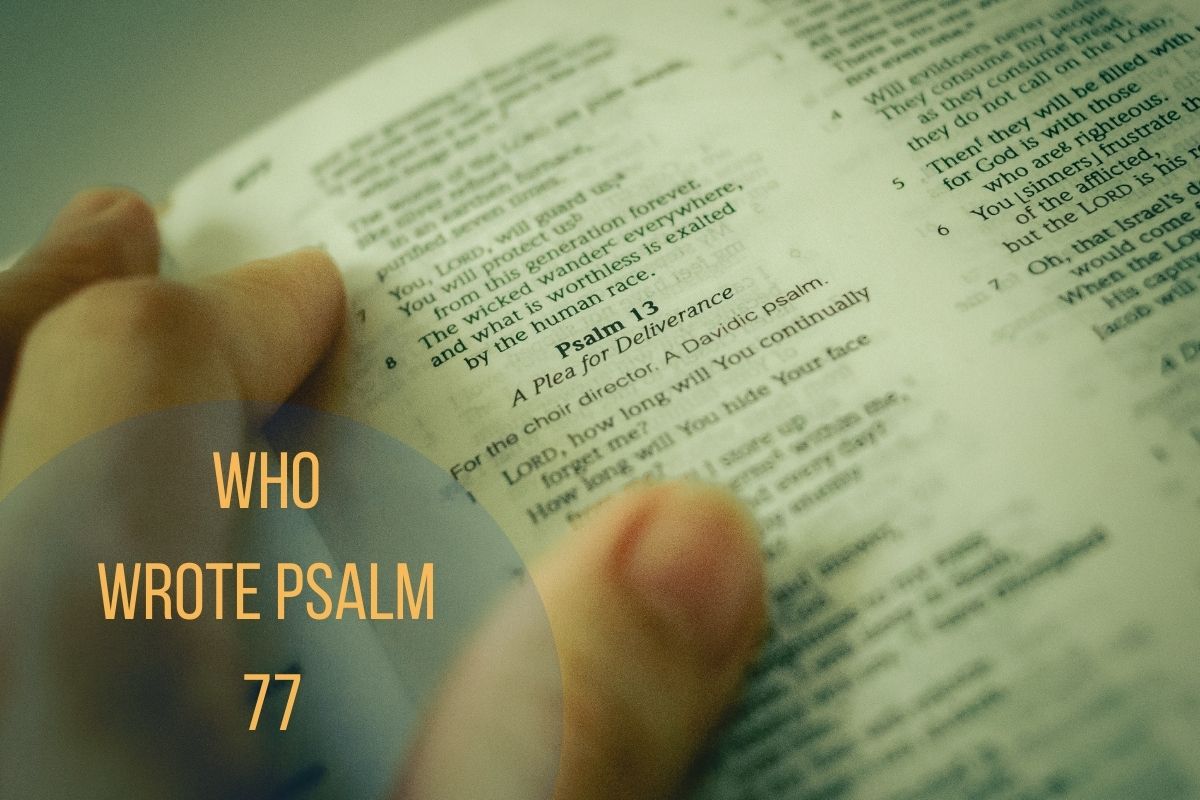Among the psalms, Psalm 77 stands out as a particularly intriguing piece of ancient literature. In this article, we will delve into the question: Who wrote Psalm 77?
The Book of Psalms, nestled within the Old Testament of the Bible, is a collection of 150 poetic and lyrical compositions that encompass a wide range of emotions, from praise and thanksgiving to lament and supplication.
Who Wrote Psalm 77
Before we explore the authorship of Psalm 77, it’s essential to understand the broader context of the Book of Psalms. This sacred text is often regarded as the hymnal of the Hebrew Bible, showcasing the heartfelt expressions of the authors’ faith, struggles, and praises.
Psalm 77: A Closer Look
Historical Context
Psalm 77 is situated in the Book of Psalms, known for its historical and religious significance. It is crucial to examine the historical backdrop against which this psalm was composed to grasp its true meaning.
The Themes of Psalm 77
Psalm 77 explores profound themes that resonate with readers throughout history. Its themes include faith, doubt, and the unwavering trust in a higher power during times of distress.
Authorship Debate
The authorship of ancient texts like the Psalms often sparks scholarly debate. Psalm 77 is no exception, and there are different viewpoints regarding its authorship.
Traditional Attribution
Traditionally, Psalm 77 is attributed to Asaph, a significant figure in the biblical narrative. Asaph is believed to have been a Levite and a musician in King David’s court.
Alternative Theories
However, alternative theories suggest different authors or contributors to this psalm. Some scholars argue that the Psalms underwent a lengthy process of compilation, and multiple authors may have contributed to individual psalms.
Asaph: A Key Figure
Asaph in the Bible
To better understand the attribution to Asaph, it’s essential to explore his role in the Bible. Asaph is mentioned in the Book of Chronicles as a Levite appointed by King David to lead worship.
Evidence for Asaph’s Authorship
The evidence for Asaph’s authorship of Psalm 77 lies in the tradition and historical context. The association of Asaph with music and worship makes it plausible that he could have composed this psalm.
Theological Significance of Psalm 77
Personal Reflection
Psalm 77, regardless of its authorship, holds a unique place in the hearts of many believers. Its themes of wrestling with doubt and finding solace in faith resonate deeply.
Universal Themes
The psalm’s universal themes of seeking divine intervention during times of trouble make it relevant across cultures and belief systems.
Conclusion
In conclusion, the question of who wrote Psalm 77 remains a subject of debate among scholars. While tradition attributes it to Asaph, the complexities of biblical authorship leave room for alternative theories. Regardless of its author, the psalm’s enduring message of faith amidst adversity continues to inspire and provide solace to countless individuals.
Frequently Asked Questions (FAQs)
1. Is there any conclusive evidence proving Asaph as the author of Psalm 77?
- While tradition points to Asaph as the author, conclusive evidence is elusive, leaving room for debate.
2. What are the central themes of Psalm 77?
- Psalm 77 explores themes of faith, doubt, and seeking divine intervention during times of distress.
3. How has Psalm 77 been interpreted throughout history?
- Throughout history, Psalm 77 has been interpreted as a source of solace and inspiration for individuals facing adversity.
4. Are there other psalms attributed to Asaph?
- Yes, several psalms in the Book of Psalms are attributed to Asaph, further highlighting his role in biblical music and worship.
5. Why is the Book of Psalms significant in the Bible?
- The Book of Psalms holds great significance in the Bible as it contains a diverse collection of prayers, hymns, and reflections that express a wide range of human emotions and experiences.







